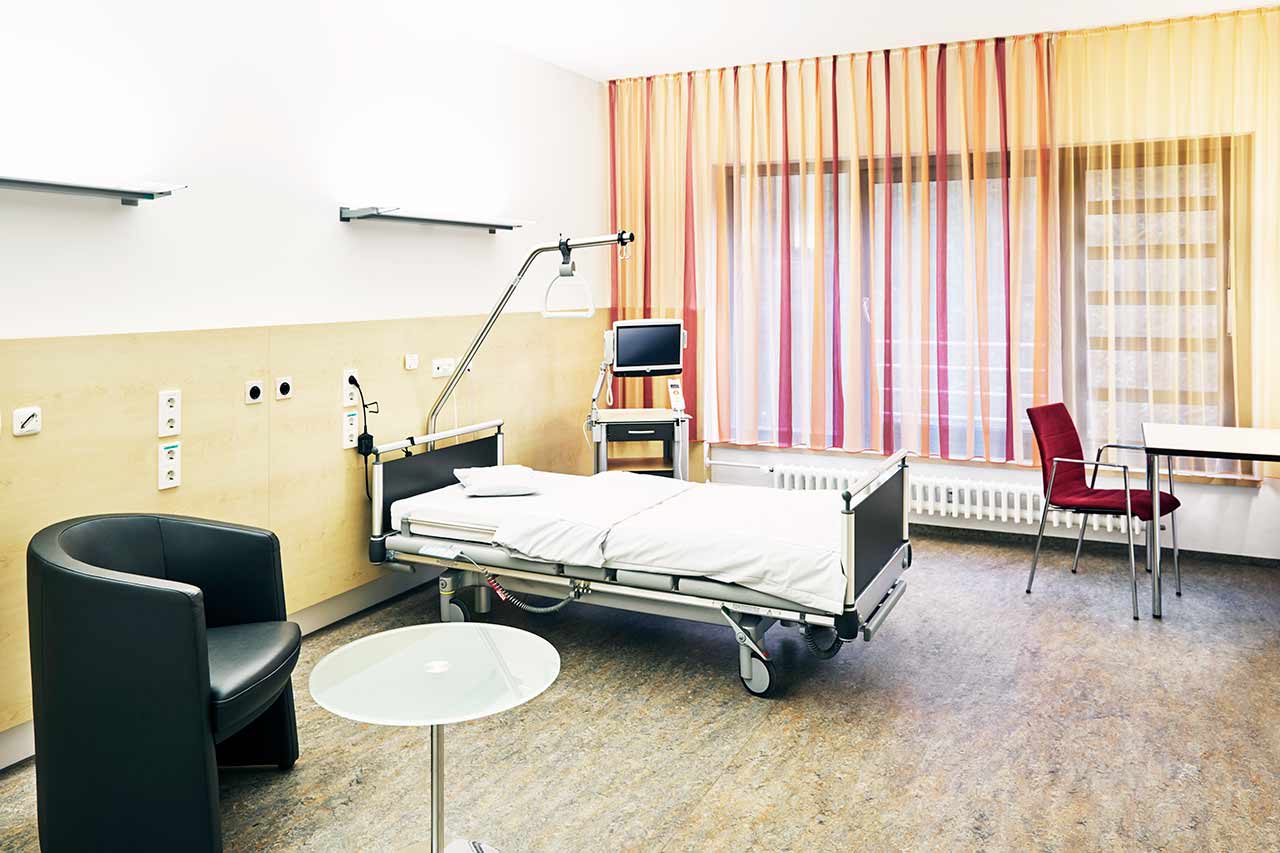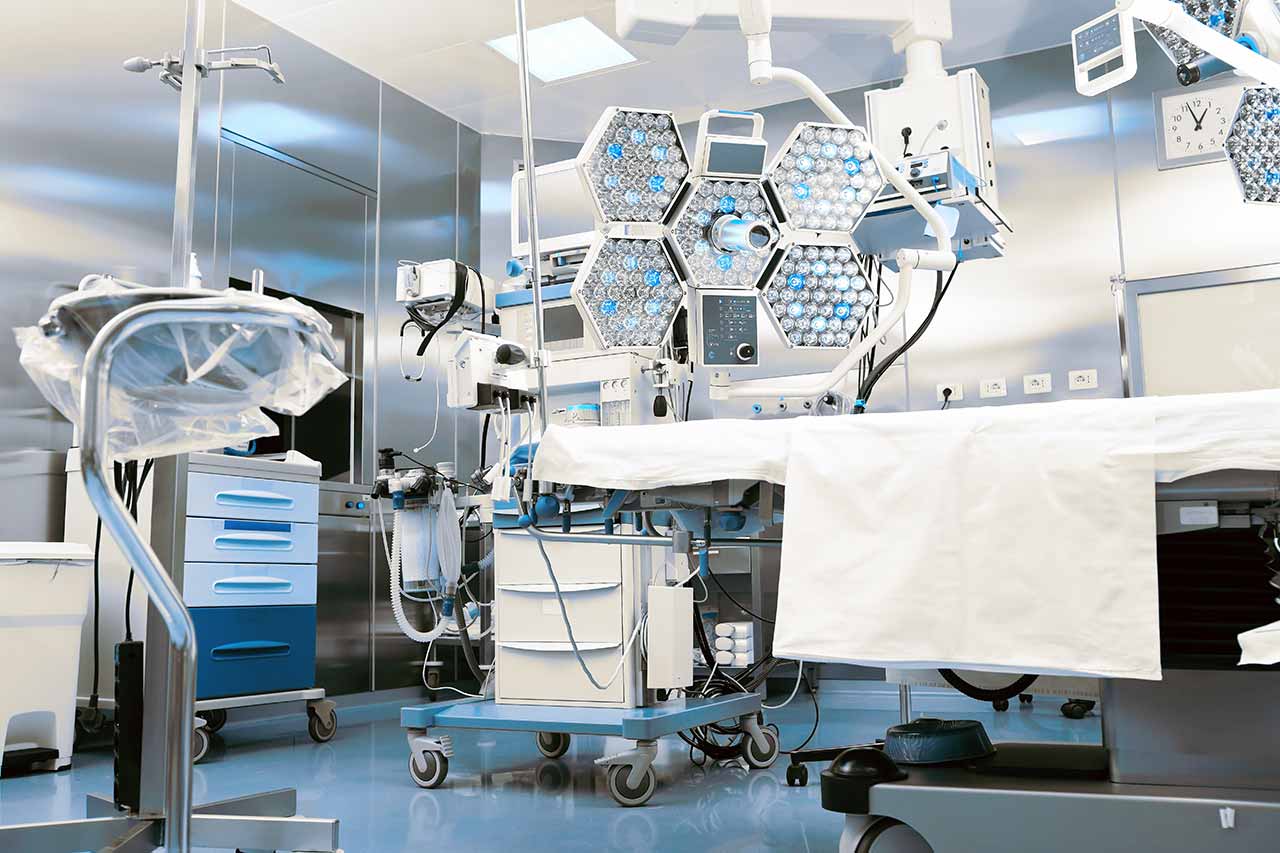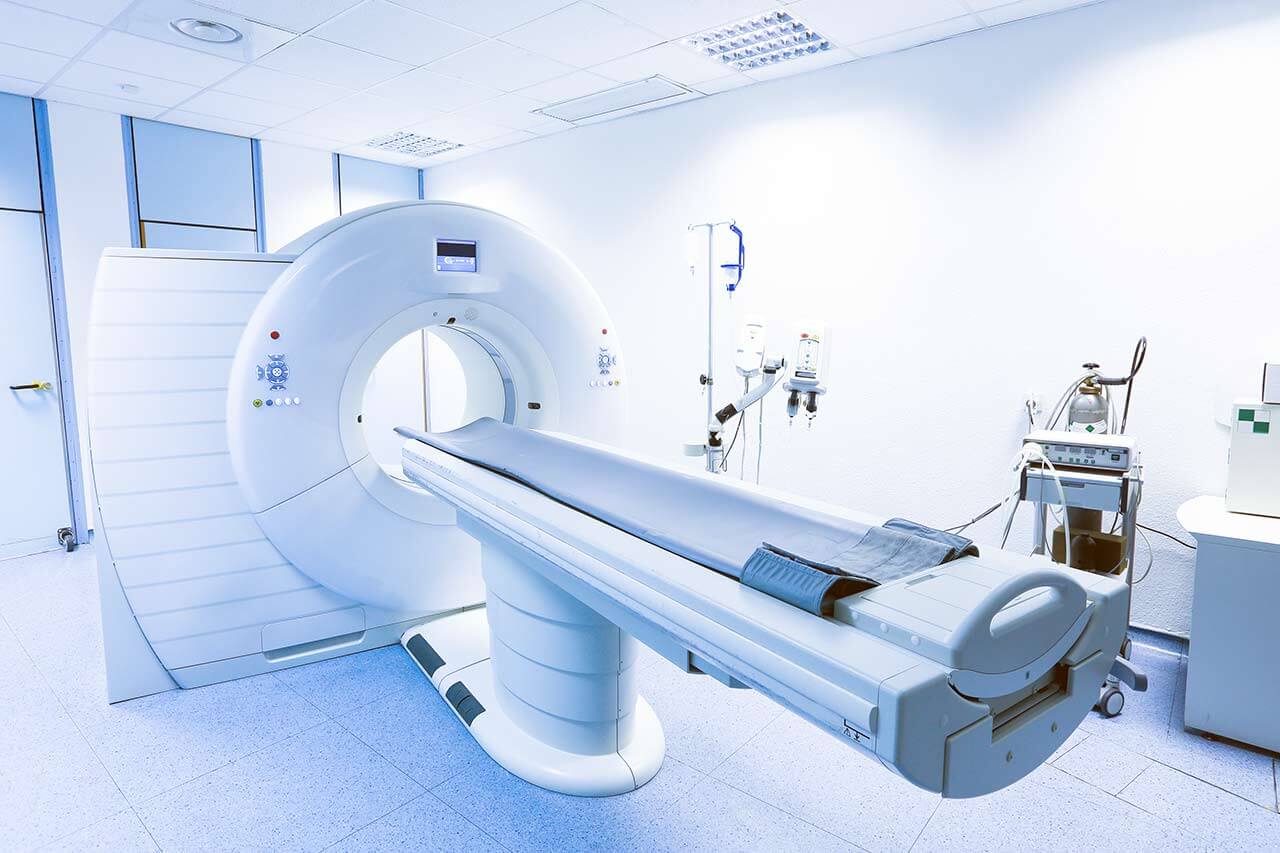
About the Department of Oncology, Hematology, Immunology and Bone Marrow Transplantation at Hospital Kassel
The Department of Oncology, Hematology, Immunology and Bone Marrow Transplantation at the Hospital Kassel provides top-class medical services for the diagnostics and treatment of malignant diseases of the blood, bone marrow and lymphatic system, as well as solid malignant tumors – gastrointestinal, lung, breast tumors, etc. The department demonstrates excellent results in autologous bone marrow transplantation for the treatment of various types of leukemia. The medical facility has advanced diagnostic equipment for the detection of the slightest anatomical changes in the body, including before the onset of symptoms. The medical facility regularly holds interdisciplinary tumor boards, during which the specialists from related medical fields cooperatively develop the optimal cancer treatment regimen individually for each patient. This approach allows the doctors to successfully treat patients even with extremely complex clinical cases. The patients with advanced stages of cancer are provided with palliative care aimed at relieving symptoms and improving the quality of life. Psycho-oncological care is an obligatory part of the therapeutic process. Depending on the particular clinical case, the treatment can be provided both on an inpatient and outpatient basis. In addition, it is possible to undergo a course of therapy in a day hospital. The department is headed by Prof. Dr. med. Martin Wolf.
In total, the department employs 13 doctors, 7 of whom are board certified specialists in oncology and hematology. In addition, the patients receive care from the highly professional nursing team of 40 employees with additional qualifications in caring for cancer patients. The hospital has 52 beds inpatient treatment, 8 of which are designed for palliative care for patients with advanced stages of cancer. In addition, the department has 12 special units for bone marrow transplantation in patients suffering from leukemia.
The first stage in the treatment of blood malignancies and solid tumors is comprehensive diagnostics, which includes many laboratory and instrumental tests: blood tests, bone marrow aspiration, molecular genetic and molecular biological tests, histologic and cytogenetic examinations, X-ray, ultrasound, CT, MRI, interventional diagnostic procedures (for example, biopsy), etc. The required set of studies is determined for each patient individually after a general clinical examination and study of the patient's medical history. With the results of the diagnostic tests, the doctor holds a consultation with the patient, during which he informs him about his diagnosis and possible treatment options. Each patient is provided with an individual step-by-step treatment regimen, which is developed during an interdisciplinary tumor board with the participation of oncologists, radiologists, hematologists, surgeons, radiation therapists and other necessary specialists.
The department's doctors have a huge number of modern treatment methods, the effectiveness of which is recognized throughout the world. The main types of therapy used in the department's clinical practice for the treatment of solid malignant tumors include surgical treatment (in collaboration with colleagues from the Departments of Neurosurgery, Thoracic Surgery, General and Abdominal Surgery, Gynecology, Urology, etc.), radiation therapy, chemotherapy, immunotherapy, targeted therapy and antibody therapy. The first line treatment for patients with blood cancer (leukemia) is chemotherapy. In some cases, chemotherapy does not give a good result, and then hematologists have to resort to bone marrow transplantation. The department specializes in autologous transplantation, which involves the transplantation of the patient's own hematopoietic cells contained in the bone marrow, peripheral and umbilical cord blood. Prior to the transplantation, the patient usually undergoes chemotherapy or radiation therapy for maximum destruction of cancer cells. This is followed by harvesting stem cells (apheresis), which is performed in the department's in-house Blood Bank. The duration of the procedure is 2-4 hours. Depending on the particular clinical case, only one or several procedures may be required, which are performed within several days. If the number of stem cells in the patient's body is not sufficient for harvesting, the doctors use growth factors (for example, granulocyte colony-stimulating factor) to stimulate the formation of blood stem cells. These factors are injected once a day into the subcutaneous fat of the abdominal wall or thigh. The next step is high-dose chemotherapy. The patient also takes special medications for the prevention of side effects. The final stage of stem cell transplantation is the infusion of specially treated stem cells previously obtained during apheresis. After transplantation, the patient is under the close monitoring of hematologists in a special isolated unit in order to avoid infections, rejection of the transplanted bone marrow and other complications.
The department specializes in the diagnostics and treatment of the following diseases:
- Malignant blood diseases
- Acute myeloid leukemia
- Acute lymphoblastic leukemia
- Chronic myeloid leukemia
- Chronic lymphocytic leukemia
- Lymphoma
- Multiple myeloma
- Myelodysplastic syndrome
- Polycythemia vera
- Malignant solid tumors
- Brain cancer
- Head and neck malignancies
- Lung cancer
- Esophageal cancer
- Stomach cancer
- Colon cancer
- Sarcoma
- Kidney cancer
- Bladder cancer
- Breast cancer
- Ovarian cancer
- Prostate cancer
- Testicular cancer
- Neuroendocrine tumors
- Other pathologies
The department's range of diagnostic and therapeutic services includes:
- Diagnostics
- Blood tests
- Blood smear microscopy
- Bone marrow aspiration
- Lumbar puncture
- Molecular genetic and molecular biological tests of the blood and tumor tissue
- Histologic and cytogenetic examinations of the bone marrow and tumor tissue
- Imaging diagnostic tests
- X-ray
- Ultrasound
- CT scan
- MRI
- PET-CT
- Interventional diagnostic procedures, including CT- and ultrasound-guided puncture
- Drainage system placement
- Treatment
- Surgical resection of solid malignant tumors
- Chemotherapy
- Radiation therapy
- Antibody therapy
- Immunotherapy
- Hormone therapy
- Targeted molecular therapy
- Autologous bone marrow transplantation
- Palliative care for the alleviation of symptoms in advanced stages of cancer
- Other diagnostic and treatment methods
Curriculum vitae
Higher Education and Professional Career
- 1979 - 1984 Study of Human Medicine, Faculty of Medicine, Philipps University of Marburg.
- 1985 Admission to medical practice.
- 1987 Doctoral thesis defense.
- 1985 - 1993 Assistant Physician in the Department of Internal Medicine at the University Hospital Marburg UKGM.
- 1993 Board certification in Internal Medicine.
- 1993 - 1995 Preparation for board certification in Hematology and Oncology, Department of Internal Medicine at the University Hospital Marburg UKGM.
- 1996 Board certification in Hematology and Oncology.
- 1994 Habilitation and PD title.
- 1995 - 1997 Senior Physician with management responsibilities, Department of Hematology, Oncology and Immunology at the University Hospital Marburg UKGM.
- 1997 - 1998 Acting Head of the Department of Hematology, Oncology and Immunology at the University Hospital Marburg UKGM.
- 1999 - 2002 Senior Physician with management responsibilities, Department of Hematology, Oncology and Immunology at the University Hospital Marburg UKGM.
- 2001 Extraordinary Professorship at the Philipps University of Marburg.
- 2002 Certified by the European Society for Medical Oncology (ESMO).
- Since 2003 Chief Physician of the Department of Oncology, Hematology, Immunology and Bone Marrow Transplantation at the Hospital Kassel.
Photo of the doctor: (c) Klinikum Kassel





